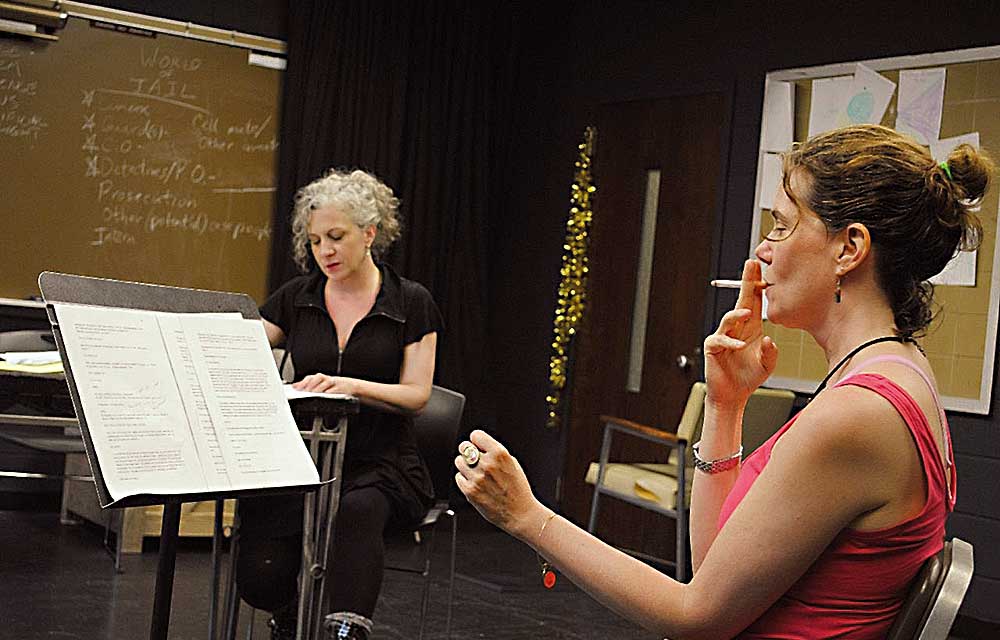In 1965, a woman was shot dead by the Ku Klux Klan. Viola Liuzzo, a mother of five, had been driving African-American civil rights activists home after a long four-day march from Selma to Montgomery, Ala. Present at the crime scene was FBI informant Gary “Tommy” Rowe, who was operating undercover as a KKK member and was riding in the car with the men who shot Liuzzo. Ultimately, Liuzzo was to be the only white female activist to die during the Civil Rights Movement.
“I was interested in the similarities between Viola and Tommy—both being from the South, both growing up poor. Neither of them made it through high school,” says playwright Catherine Filloux, whose Selma ’65—a dramatization of the lives of these two people and the singular event that connected them—is slated for a Sept. 26–Oct. 12 run at La MaMa E.T.C. under Eleanor Holdridge’s direction.
Filloux wrote the play as a one-woman vehicle for actress Marietta Hedges. “What really excited me was the idea of Marietta playing both Viola and Tommy, because the two of them were on a path, a fateful path, that ended up on that same very sad road.”
Next year will mark the 50th anniversary of the Selma-to-Montgomery March. For Filloux, Selma ’65 is a way to remember the literal blood and sweat that it took to get the 1965 Voting Rights Act passed, and to draw attention to those who have been forgotten in the history books. “The average person today wouldn’t know how absolutely violent and long the struggle was for voting rights,” the playwright notes. “The Supreme Court gutted the Voting Rights Act a year ago. In a way, that’s a metaphor for the lack of respect for that bloody struggle.”


